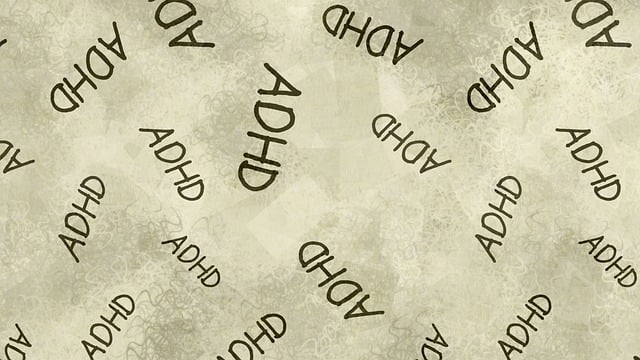Postpartum depression (PPD) is a common but often overlooked mental health issue affecting new mothers in Englewood, impacting their self-care and baby bonding. Barriers include limited resources, cultural stigma, and lack of awareness. Early intervention through therapy, medication, and community initiatives like journaling and podcasts can mitigate PPD. A strategic mental health education program tailored to Englewood's needs should incorporate interactive learning, group discussions, mindfulness meditation, and cultural sensitivity, empowering mothers with tools for mood management and stress reduction. This approach addresses unique challenges, improves access to support, and boosts overall well-being, especially in high-stress socioeconomic environments like Englewood.
Mental health education programs play a pivotal role in empowering communities to recognize and address issues like postpartum depression (PPD), especially in areas like Englewood, where access to resources can be limited. This article explores a comprehensive program design focused on PPD therapy, highlighting the significance of early intervention for new mothers. We delve into engaging educational strategies, cultural sensitivity, and implementation plans to ensure accessibility and long-term benefits for Englewood residents, aiming to improve mental health outcomes.
- Understanding Postpartum Depression: Symptoms and Impact on Mothers in Englewood
- The Importance of Early Intervention for Mental Health in New Moms
- Designing an Effective Education Program: Engaging and Educative Strategies
- Incorporating Cultural Sensitivity: Addressing Unique Challenges in Englewood Communities
- Implementation and Support: Ensuring Accessibility and Long-term Benefits
Understanding Postpartum Depression: Symptoms and Impact on Mothers in Englewood

Postpartum depression (PPD) is a common yet often overlooked mental health challenge faced by many new mothers in Englewood and beyond. It’s more than just the ‘baby blues’; PPD is a serious mood disorder that can significantly impact a mother’s ability to care for herself and her baby. Symptoms may include persistent sadness, extreme fatigue, changes in appetite, difficulty sleeping, anxiety, feelings of guilt or worthlessness, and in severe cases, thoughts of harm to oneself or the child.
Mothers in Englewood, particularly those from underserved communities, may face additional barriers to accessing appropriate care due to limited resources, cultural stigma, or lack of awareness about available support. The impact of PPD can be profound, affecting not just the mother’s mental wellness but also her ability to bond with her baby and perform everyday tasks. Effective interventions include therapy, medication, and practical support systems like a Mental Wellness Journaling Exercise Guidance designed for new mothers. Even a Mental Wellness Podcast Series Production focused on maternal mental health can provide valuable information and community.
The Importance of Early Intervention for Mental Health in New Moms

Early intervention is a cornerstone in addressing mental health challenges among new mothers, aiming to prevent and mitigate issues like Englewood postpartum depression therapy. The perinatal period, encompassing pregnancy and the postpartum phase, is a critical time when women are susceptible to significant emotional shifts due to hormonal changes, life transitions, and the demanding responsibilities of motherhood. Many new moms struggle with anxiety relief and mood management, which, if left unaddressed, can escalate into more severe conditions such as depression or anxiety disorders.
Implementing comprehensive mental wellness programs tailored for this demographic is essential. These initiatives should focus on educating mothers about recognizing the signs and symptoms of mental health issues, fostering open conversations around emotional well-being, and providing accessible resources for support. By prioritizing early intervention, communities can empower new moms to seek help promptly, ensuring they receive the necessary tools for effective mood management and overall mental wellness.
Designing an Effective Education Program: Engaging and Educative Strategies

Designing an effective mental health education program requires a strategic approach to engage participants and impart valuable knowledge. One key strategy is incorporating interactive and varied learning methods. For instance, starting with Self-Awareness Exercises can help individuals recognize their emotions and triggers, fostering a sense of agency. Group discussions facilitated by trained professionals provide a safe space for sharing experiences, enhancing empathy building strategies. These exercises not only promote understanding but also encourage participants to view mental health challenges from different perspectives.
Additionally, integrating practices like Mindfulness Meditation into the curriculum offers a practical tool for stress management and emotional regulation. Such techniques are particularly beneficial in addressing postpartum depression, as they teach individuals to be present with their thoughts and feelings without judgment. By combining theoretical knowledge with practical skills, the program ensures that participants leave with tangible strategies to support not only themselves but also others facing similar mental health issues, such as Englewood Postpartum Depression Therapy.
Incorporating Cultural Sensitivity: Addressing Unique Challenges in Englewood Communities

Englewood communities present unique cultural and social challenges that must be considered when designing mental health education programs. With a diverse population, it’s crucial to incorporate cultural sensitivity in therapy and support initiatives. For instance, addressing postpartum depression among new mothers in these communities requires tailored strategies. The high stress levels often experienced by Englewood residents due to socioeconomic factors can contribute to burnout prevention, making it a key area of focus for healthcare providers.
Self-awareness exercises and positive thinking techniques have proven effective in combating mental health issues. By integrating these practices into educational programs, residents gain valuable tools to manage stress and promote resilience. Tailoring interventions to acknowledge the specific struggles of Englewood communities ensures that therapy and support are accessible, relevant, and impactful, ultimately enhancing overall well-being.
Implementation and Support: Ensuring Accessibility and Long-term Benefits

Implementing a mental health education program requires strategic planning and support to ensure its accessibility and long-term benefits. This includes adapting educational content to cater to diverse learning needs, especially considering sensitive topics like postpartum depression, which significantly impacts new mothers in communities such as Englewood. Accessible formats and inclusive teaching methods are vital to encourage participation and engagement.
A robust implementation strategy involves providing ongoing support systems for both learners and educators. Promoting self-care practices among mental health professionals is essential, particularly when addressing burnout prevention, as it ensures practitioners can sustain their efforts over time. Additionally, integrating risk management planning into the program equips participants with tools to navigate potential challenges, ultimately enhancing the program’s longevity and positive impact on mental health awareness and treatment.
Mental health education programs play a pivotal role in addressing postpartum depression, especially in communities like Englewood where unique cultural challenges exist. By incorporating engaging strategies, cultural sensitivity, and accessible implementation, we can empower new mothers with the knowledge and resources they need for long-term mental well-being. Early intervention and continuous support are key to revolutionizing care, ensuring that mothers in Englewood receive the effective therapy they deserve, breaking down barriers, and fostering healthier, happier families.














